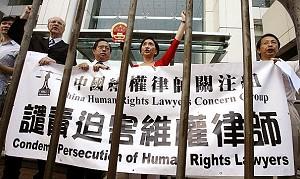BEIJING—Dozens of prominent Chinese lawyers and academics have demanded immediate abolition of the country’s labour re-education system, intensifying a struggle over the secretive imprisonment of citizens without trial.
Under “re-education through labour”, citizens can be swiftly imprisoned for up to three years, and then longer, without trial.
China calls the system a humane “corrective” alternative to real jail, but in practice police use it to hold tens of thousands of people, including protesters and those accused of theft and drug use, in tough conditions without the formal safeguards of courts.
Chinese officials have floated reforming labour re-education, which appears to contravene the country’s laws on deprivation of freedom as well as international rules. The national legislature has said it would review the rules underpinning the system.
But that discussion has produced only minor amendments to procedures.
Now 69 well-known experts and rights advocates have petitioned the national legislature to immediately examine and abolish labour re-education.
One signatory, Hu Xingdou of the Beijing Institute of Technology, said on Wednesday that they had submitted the demands to the National People’s Congress the previous day.
“The re-education through labour system has lasted for half a century and is increasingly contrary to the tide of the times,” states the petition, issued on the China Lawyers Observer Web. “It is seriously impeding our country’s progress towards rule of law.”
The signatories, including well-known scholars Jiang Ping and He Weifang as well as human rights lawyers, say the re-education detentions “clearly contravene the Constitution” and the International Covenant on Civil and Political Rights, which Beijing has signed but not yet ratified.





